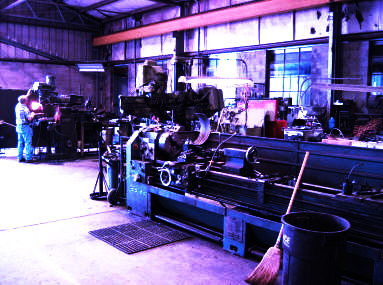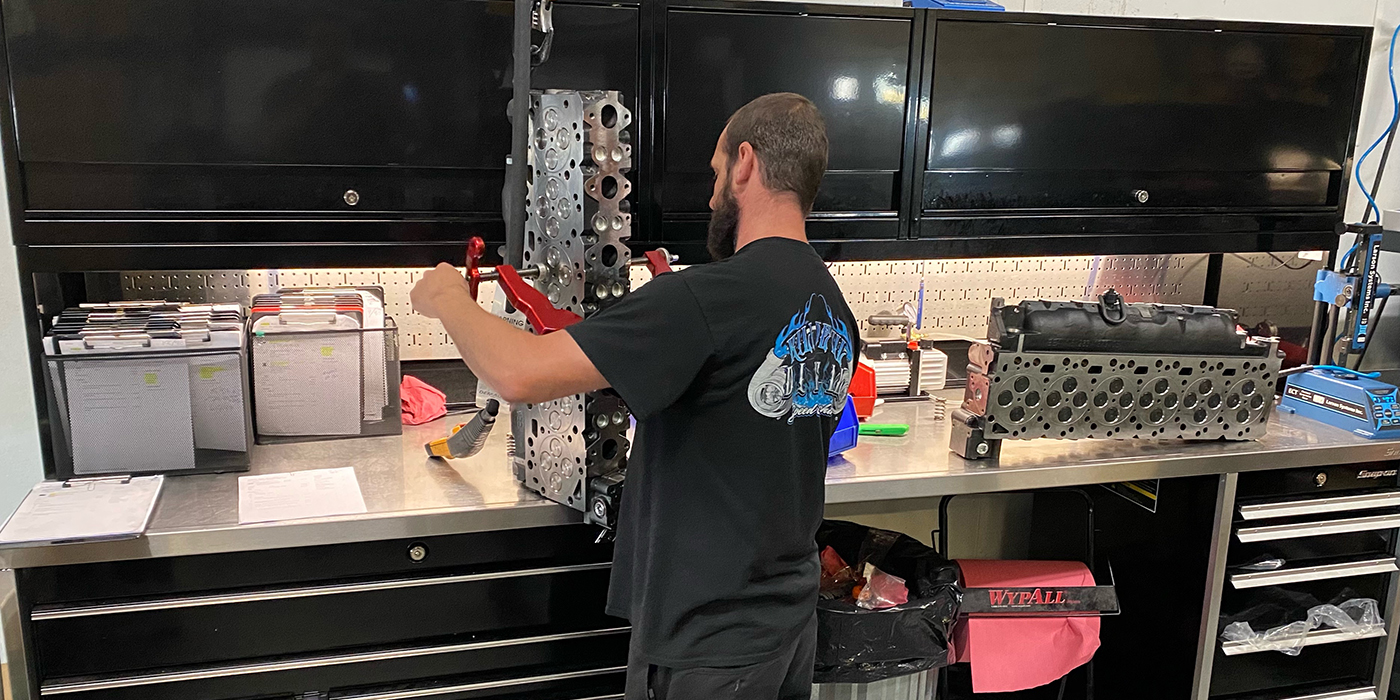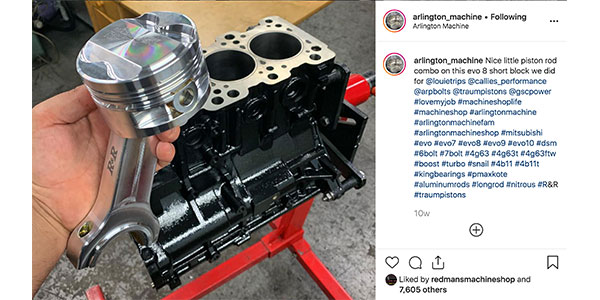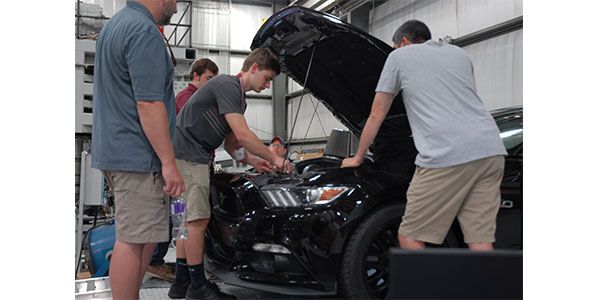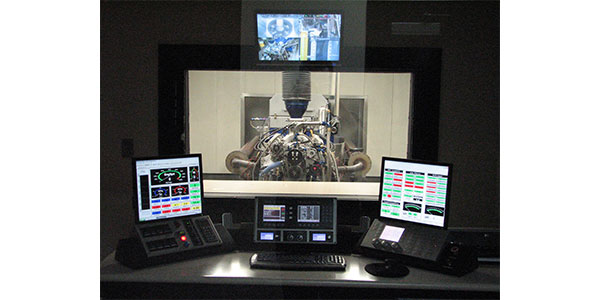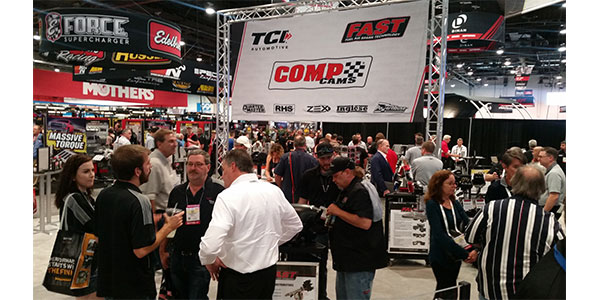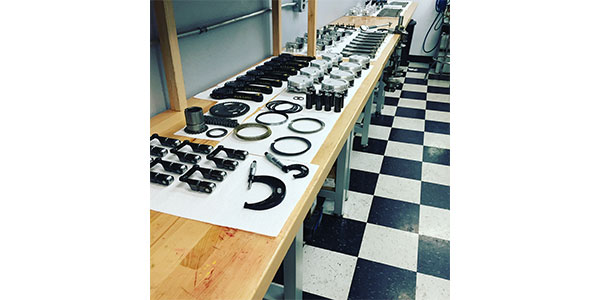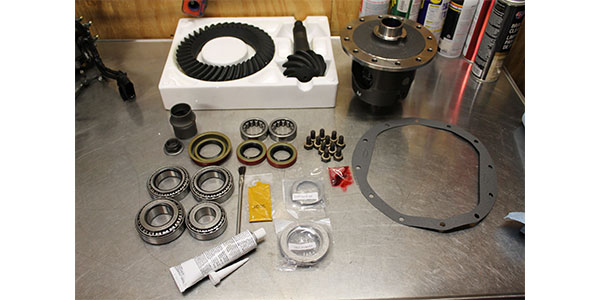A few years ago, it seemed that nearly every shop had a foreman.
However, over the years I’ve noticed that the foreman position has been
dissolved. Little by little, shops have gotten away from having a
foreman and simply have a manager with direct control over the
technicians. Why? Is it to “downsize” and save the costs associated
with this position? Was this position redundant and unnecessary?
What is a foreman? What makes a good foreman? What should he or she do?
A foreman is a blue collar manager as well as head machinist. They
are very technically knowledgeable, plus they are a good motivator,
coach, and trainer to the rest of the shop.
The best shop foremen are also good public relations personnel. They
are also the spokesperson and translator in communications between management and the shop employees, and vise versa. They are the
“filler” that smoothes over the cracks in the shop’s daily operations.
Management
The foreman is a blue collar manager. They should be good with
the organization of the shop. They should continuously police and
address the condition of the shop, such as controlling messes, making
sure the trash is emptied, making sure that lighting and other safety
related issues are as they should be. As a manager, they should be good
with motivating the other personnel and delegating jobs to them. Major
decisions are left up to management, but come down through the
foreman.
Minor decisions are handled by the foreman directly so management doesn’t have to worry or waste time over the little things.
Communicator
The foreman should also be a good customer liaison. When
technical-based questions and issues with customers arise that are
above the level of the service advisor or the white-collared manager,
the shop foreman should be the one to handle them. Let’s face it guys,
not every manager in the automotive field knows the technical aspect of
a vehicle enough to be the technical voice of the shop.
The same is true for the service advisors. Many managers would be just as at-home in their job if they were selling
washing machines or managing a box manufacturing company. Some realize
this and direct questions to a more qualified person to answer them.
However, some seem to think that because they once changed their own
oil, they can handle these technical issues when
they arise.
This second type of manager is detrimental to a
shop’s image. Inaccurate, shoot-from-the-hip answers, do nothing but
bring down the competency level of the entire shop when the customer
finds more accurate information later.
The machinists may be very capable of rebuilding the customer’s engine,
but the customer is convinced otherwise by the ramblings of someone
over the front counter. In this age of the internet, some people will
walk through that front door knowing more about a product they are
inquiring about, such as tires or brake pads, than half of the people
in your shop.
Those people will see right through a load of bologna that someone is
trying to feed them. To these people, your shop can appear as
incompetent, or mistaken for dishonest if inaccurate technical
information is given to them. A knowledgeable foreman can protect
against these false images from forming.
Technical
A good foreman’s skills are most helpful at the technical level. As you
know, from time to time, a machinist/technician may become stumped on a problem. A good foreman
should be able to either help the machinist diagnose the problem more
quickly, or completely take it over so as to free the employee up to return
to more productive work. This approach is not solely for the employees
benefit, it is also for the shop’s benefit. A machinist that is bogged down
by a technical difficulty is not producing anything for the shop
either. A fresh outlook on the problem from the shop foreman can
sometimes reveal the otherwise hidden answer.
Technical Trainer
After a shop foreman diagnoses an engine that gave another machinist a hard
time, he/she should diplomatically and politely show the original machinist what was found and how it was diagnosed. Give a man a fish
and you feed him for a day, teach a man to fish and you feed him for a
life time… same idea.
Morale Booster
Without even realizing it, a good shop foreman can boost and protect
the morale of the shop. It’s a fact,
happy employees are more productive than disgruntled ones. Not only are
they more productive, but they also tend to stay in their job longer.
So, if a good foreman is there to help out with the troublesome jobs,
he is helping to preserve the morale in the shop.
A shop foreman is a leader, and therefore is like the drummer in a
band; he sets the tempo of the others. The foreman should have a
positive outlook on his job — a negative one will sour the attitudes of
everyone else.
The Pay Plan
Oh yeah, here it is. This is the spot where, up until now, many shop
owners, managers and corporate level executives would have been
cheering along saying “Yes, we’d love to hire a person like that”,
“Bring them right in!”, and otherwise in agreement, only to go silent
at this point.
Look, let’s face it, you’re looking for “Superman”; right? You’re going to have to pay him/her like superman.
I’ve heard some cop-out answers to this subject over the years. Things
like “people don’t work for paychecks, they work for people they
respect” and “just pay them a secure salary.” Well, for one thing, when
people write a check to pay a bill, they don’t write the word “respect”
in the dollar box, and it also doesn’t take long for someone to realize
that they are getting paid the same on salary to work as hard as they
do when they goof off.
So here is my suggestion, a salary plus a monthly commission bonus. The
commission bonus should be a percentage of the net profit. Why not? If
you’re the owner, isn’t net profit ultimately how you get paid? Tie his
bonus into the same method you get paid to ensure the foreman is doing
everything he can do for your income as well.
The foreman is still an employee, not an owner, so he/she still needs the security of the salary.
The bonus not only keeps that person’s interests the same as yours, it
also rewards them automatically for doing a good job at protecting
profits and controlling expenses. It provides a built-in pay raise over
their base salary that grows with work flow as well. That sounds a lot
like a manager doesn’t it? Well it should, because after all, they are
a blue collar manager, and then some.
I believe some companies have done anyway with the foreman position to
increase profits by that person’s salary. I say they have hurt their
profits by increasing rechecks, losing customers, losing good
employees, and increasing shop supply expenses. I ask, how can they
afford to not have a good foreman? 